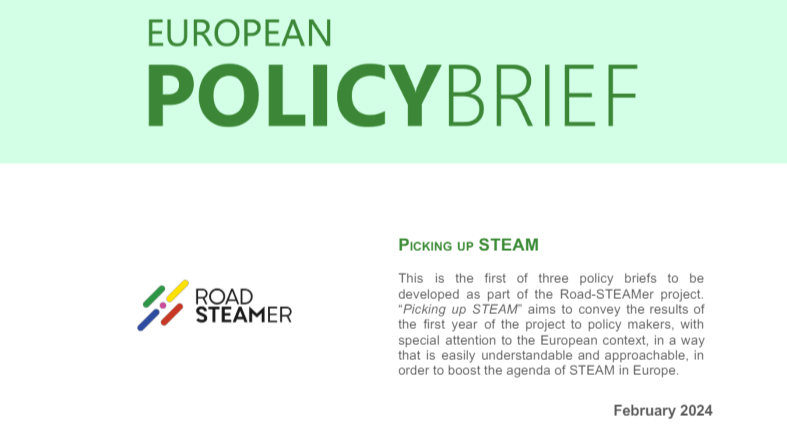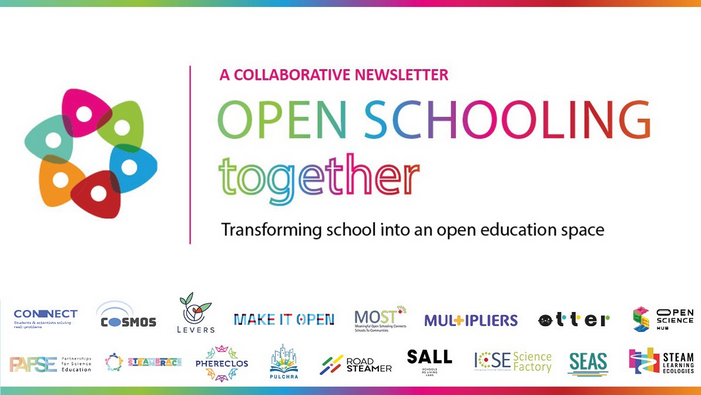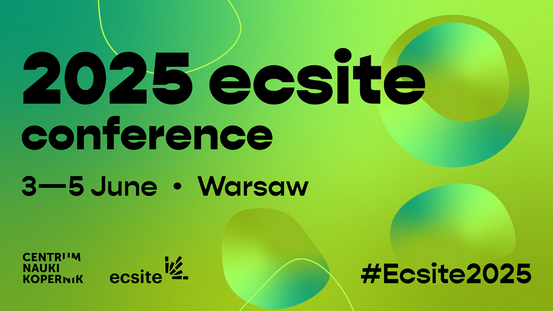Here you may find the first Road-STEAMer Policy Brief.
We analysed the current scenario of the STEM sector in Europe – facing challenges like lack of skilled employees and underrepresentation of women and marginalised groups.
To address these issues and encourage greater engagement in science, the Road-STEAMer project prioritised four policy areas for policy development:
- Encourage the uptake of STE(A)M careers;
- Increase diversity in STE(A)M;
- Increase science and arts literacy for all;
- Align education with tomorrow’s societal needs.
The project will elaborate on identified policy areas and provide evidence-based policy recommendations in the next two foreseen policy briefs.
Do you want to find out more?
You can download the Road-STEAMer First Policy Brief.



